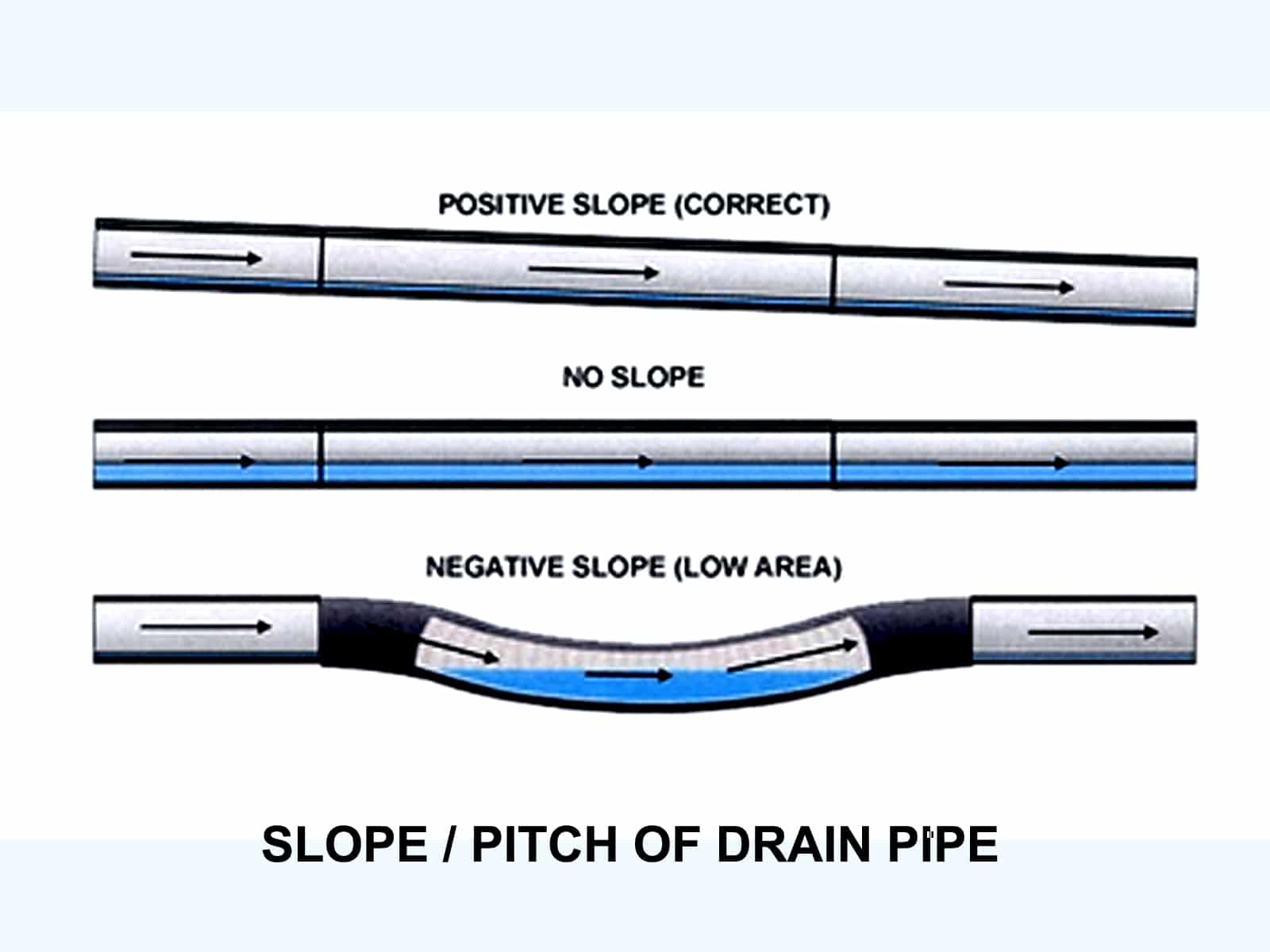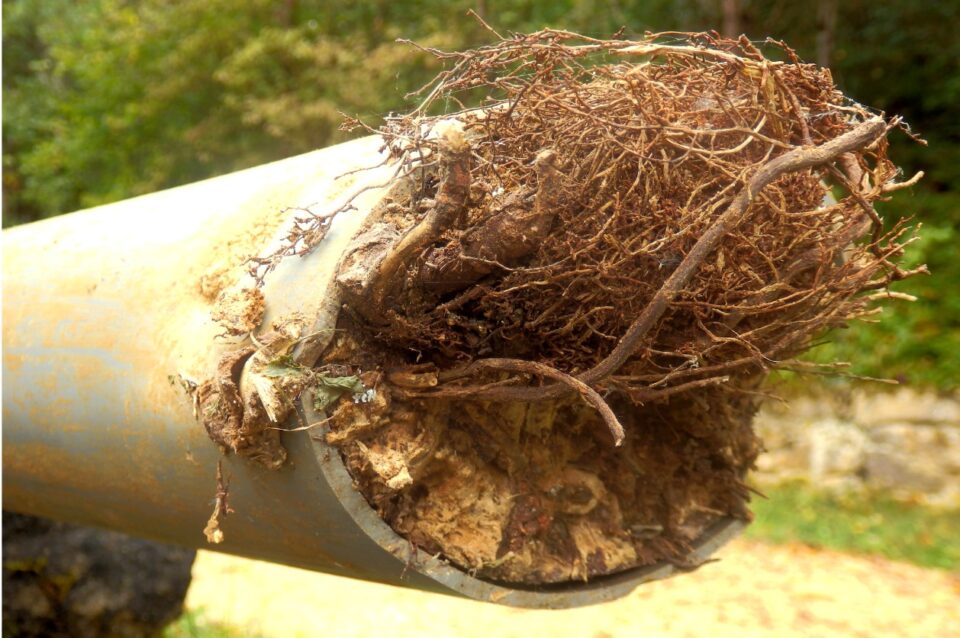If you live in the Village of Great Neck, Nassau County, or in other areas, you may have a choice in types of sewer connections. If you do, you may ask what are the differences between a septic vs. sewer system. Although “the disposal of human waste” may not be the most exciting subject to discuss, it is nonetheless interesting to make comparisons between the conventional septic tank and the more modern sewer system.
They are basically the same thing, designed to do the same essential function. Both are wastewater treatment plants built to collect, process/filter, and finally dispose of human waste. One of the most noticeable differences is that septic tanks are privately or individually owned and maintained by homeowners, while sewer system is often used by many people at the same time.
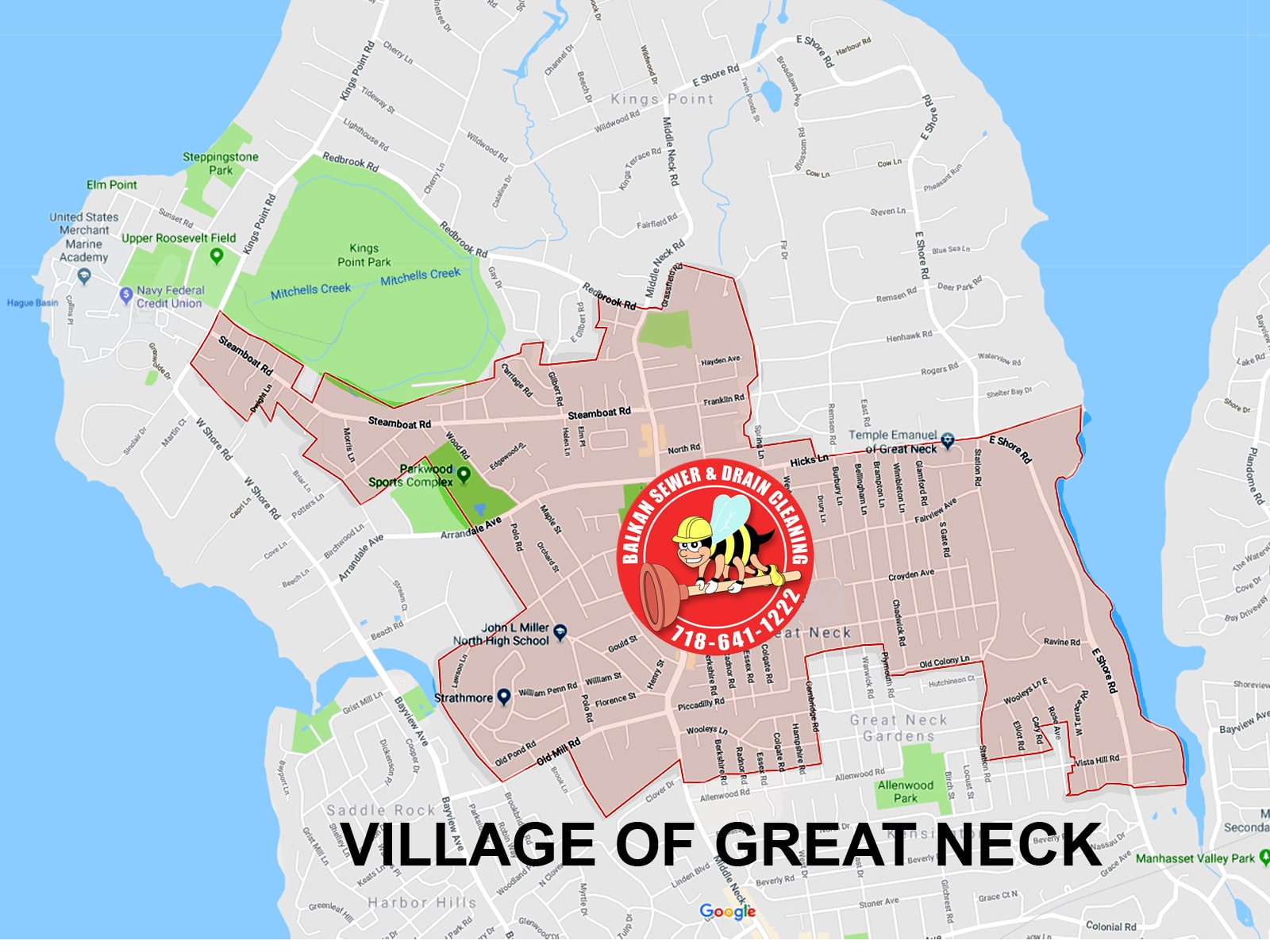
A Private Septic System
In a typical septic system, the biggest component is a massive tank, around 2000-gallons of capacity or more. It is buried somewhere underground in a homeowner’s private property. Ideally it is located as far away as possible from the main building and water supply (such as rivers, lakes, wells, etc) to prevent contamination. In many areas the tank itself must be a minimum of 15′ from any structure. It is also advisable not to plant any trees nearby your tank. Tree root intrusion into you septic tank can cause damage, and prevent the system fr0m functioning properly.
Most tanks are constructed of concrete or steel, but there are also some variants made of PVC, fiberglass, or plastic. Years ago they were built by hand and made out of bricks or cinder blocks. Older tanks, due to a lower grade of construction, were prone to collapse, or premature failure. It terms of the connecting piping itself, a septic vs. sewer system utilizes the same pipe material.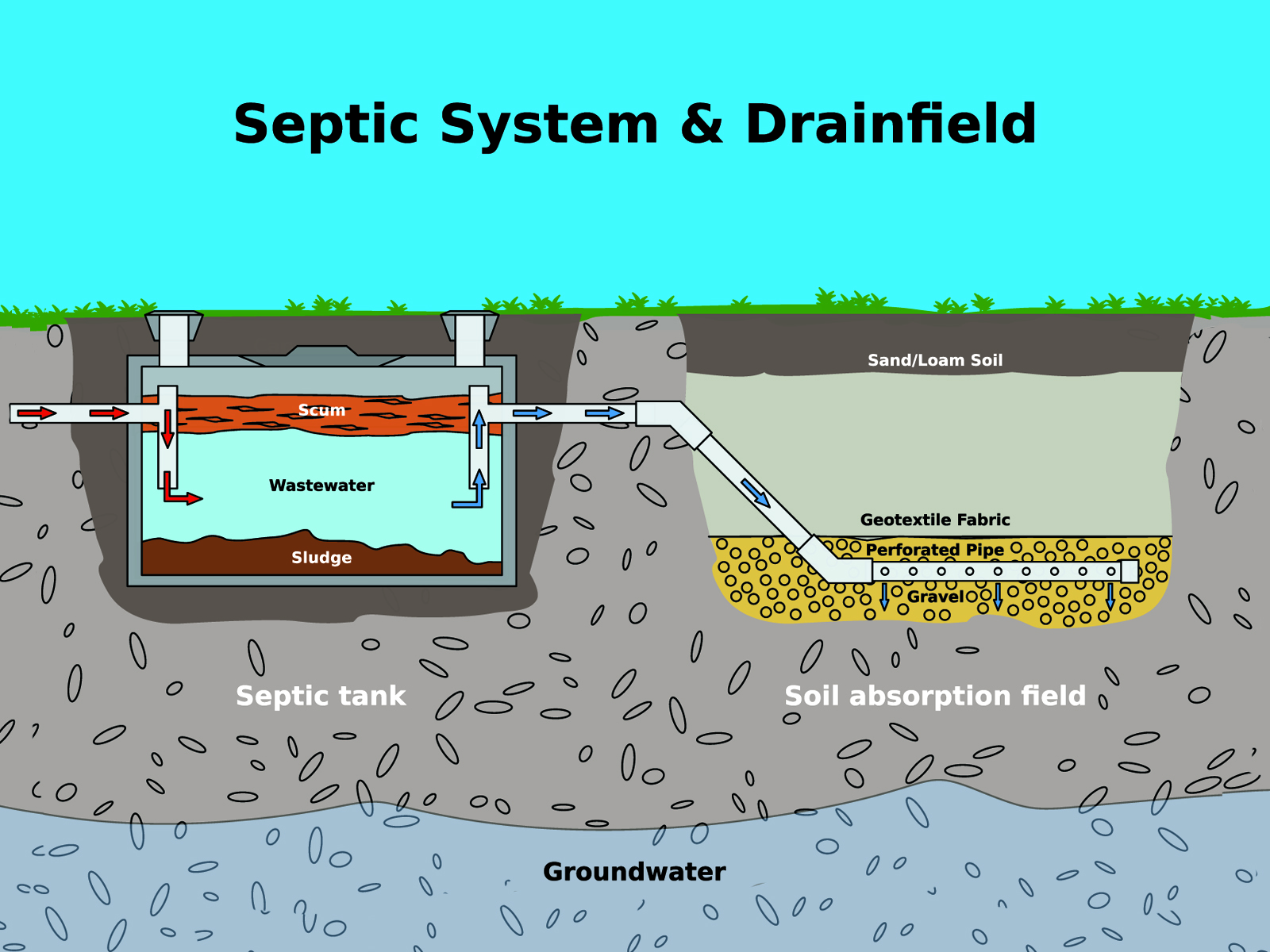
A septic system collects two classifications of waste water
Pipes from your home carry graywater. Which is wastewater from fixtures other than toilets. They also carry blackwater, human waste, into the tank. A septic system depends on natural chemical processes and bacteria inside the tank to breakdown waste materials. This endless process leaves the dirtiest part of the wastewater at the bottom of the tank. This is more commonly referred to as sludge. There is a more thoroughly processed portion to form the top layer, known as scum. The water in between the two layers is relatively the cleanest, the emphasis being on “relatively”.
There are different components to a septic system
The topmost layer, or scum, flows out of the tank into a small area of land called drain field or leach field. Since the drain field contains soil and gravel, the partially-treated waste materials from the tank will once again undergo a natural filtration process before it goes back to the environment. Sludge remains inside the tank, and this is why homeowners call a professional once every two years or so to drain the tank. If installed and maintained properly, a septic tank can be an effective affordable alternative to a sewer system indeed.
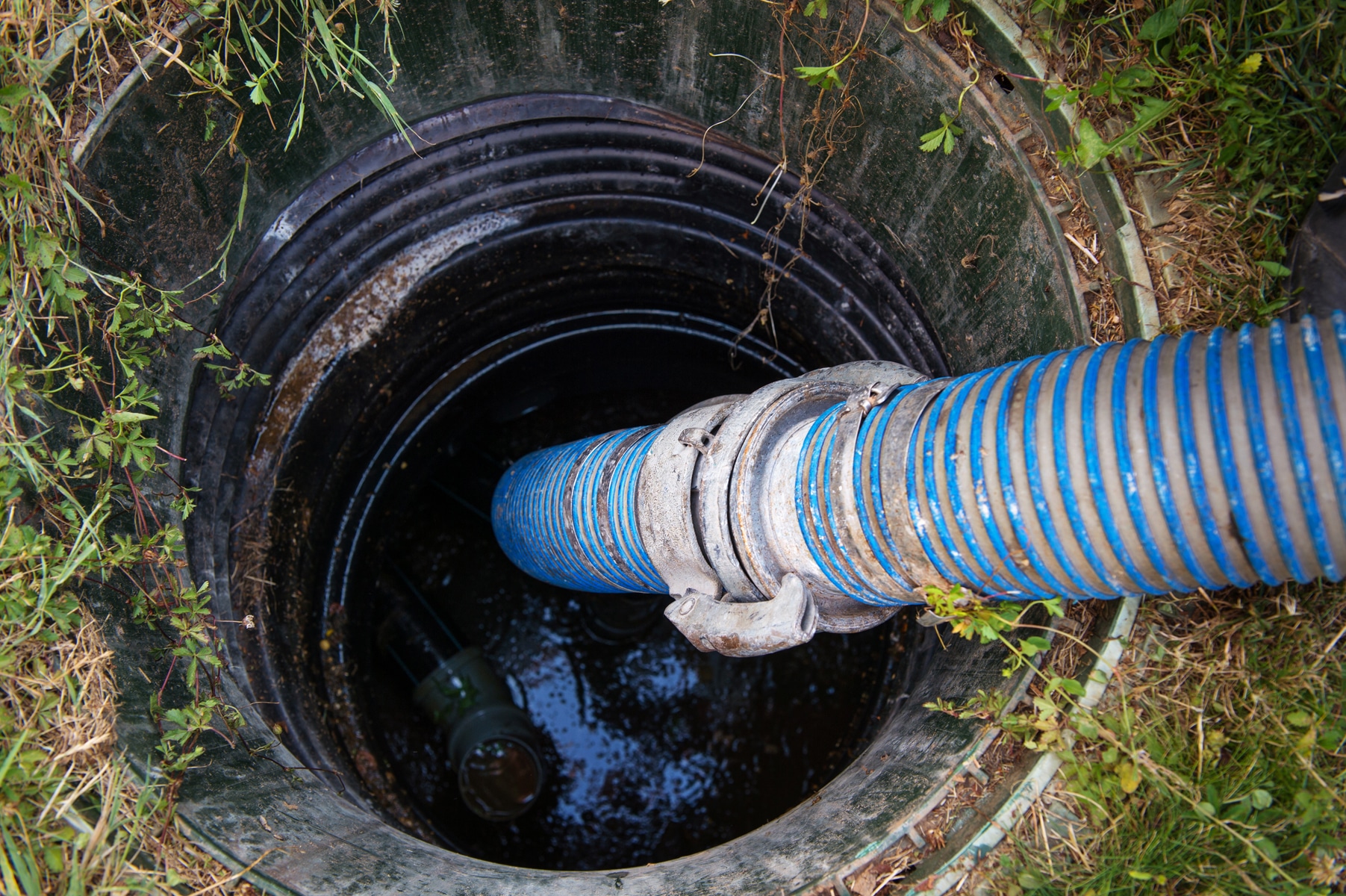
A Sewer that connects to a Public Sewer System
Unlike a septic tank, which relies on natural water filtration system for the most parts, a public sewer system does all cleaning processes in wastewater treatment plant. Also, a single treatment plant can be connected to hundreds (if not thousands) of homes at the same time. Pipes from homes carry wastewater into the treatment facility where it will be cleaned, disinfected, and purified before it is released to the environment. A house sewer, just like piping for a septic system, can fail. When drain piping breaks in either case, only trust a licensed and professional house sewer contractor. A septic vs. sewer system are both prone to defects over a similar periods of time.
Septic vs. Sewer System: Which is best?
The quick answer to septic vs. sewer system is: sewer system. Compared to septic tank, a sewer system is much more practical for the vast majority of people in urban areas. Not everybody can afford the luxury to build a proper septic tank, with leach fields located far away, yet still within the boundary of private property. New homeowners can also use water fixtures right away because most residential buildings, especially in big cities, are connected to sewer system already. Neither is perfect, however.
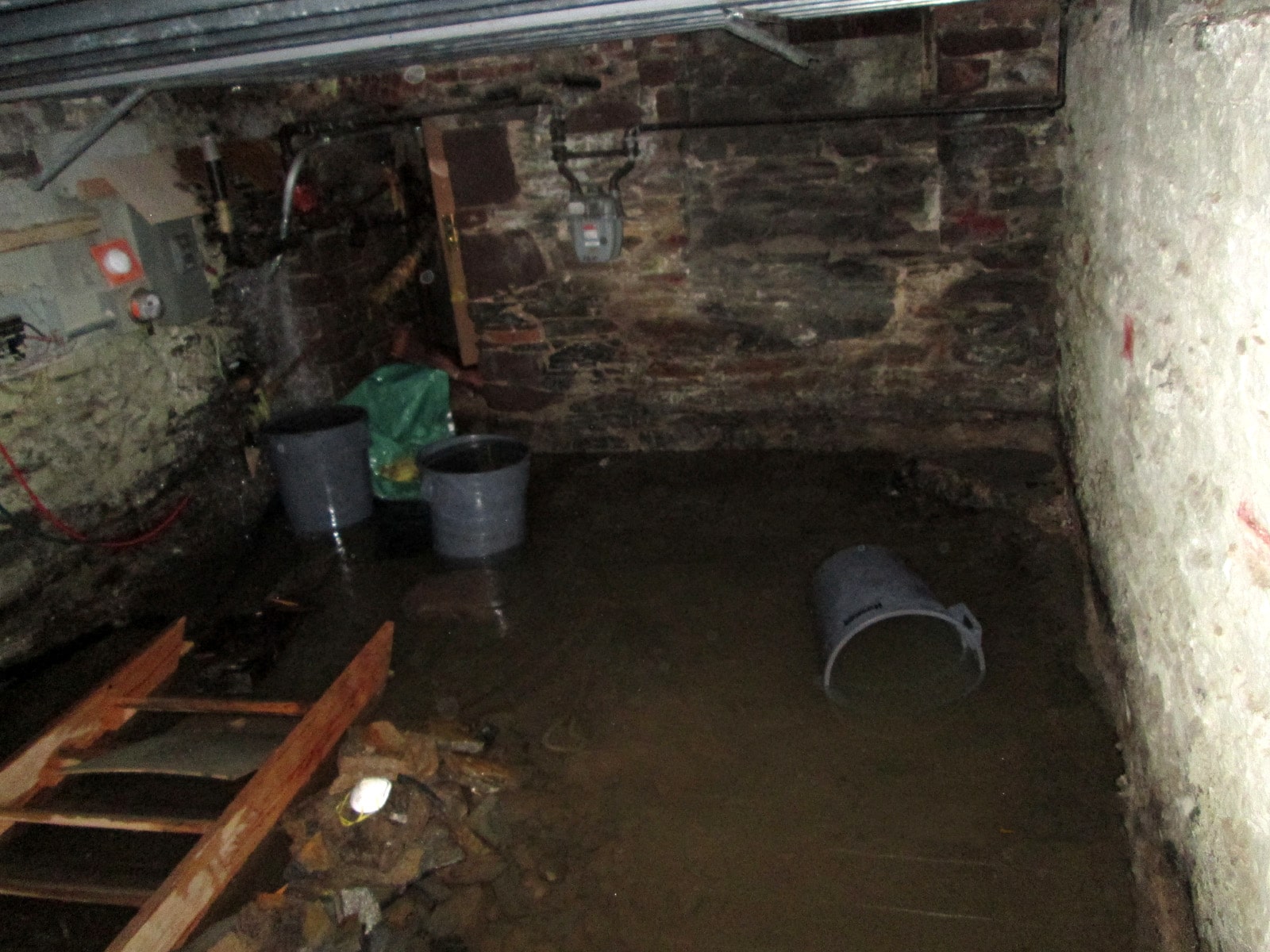
While a septic tank is less prone to flooding in the event of heavy rainstorm, vs. public sewer surcharges. When a public sewer surcharges many homes can get damaged. However, a natural filtration system can take too long to process waste materials such as grease, hair, cigarette butts, diapers, plastics, and even pharmaceuticals. A septic system is also more likely to get overburdened if water usage is not carefully managed.
A sewer system connected to a public sewer has its limitations as well. They can be in terms of capacity, but generally it does a better job at preventing contamination. A septic system is more prone to contaminate groundwater, and requires regular maintenance. While a connection to a public sewer system requires less-demanding maintenance on a homeowners’ part. If you would like more expert advice, information, or service, contact the Balkan Drain Team for a prompt response.

